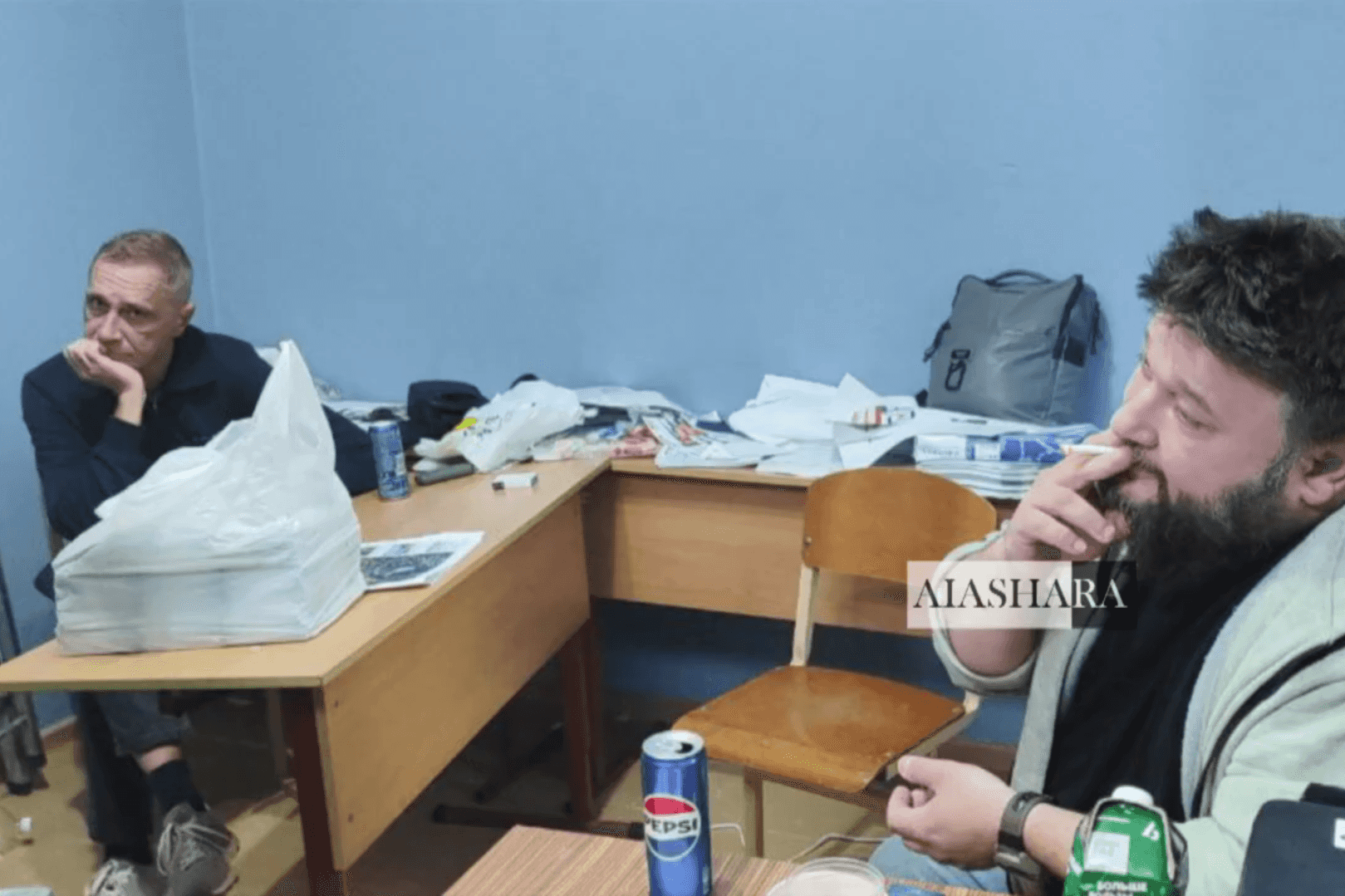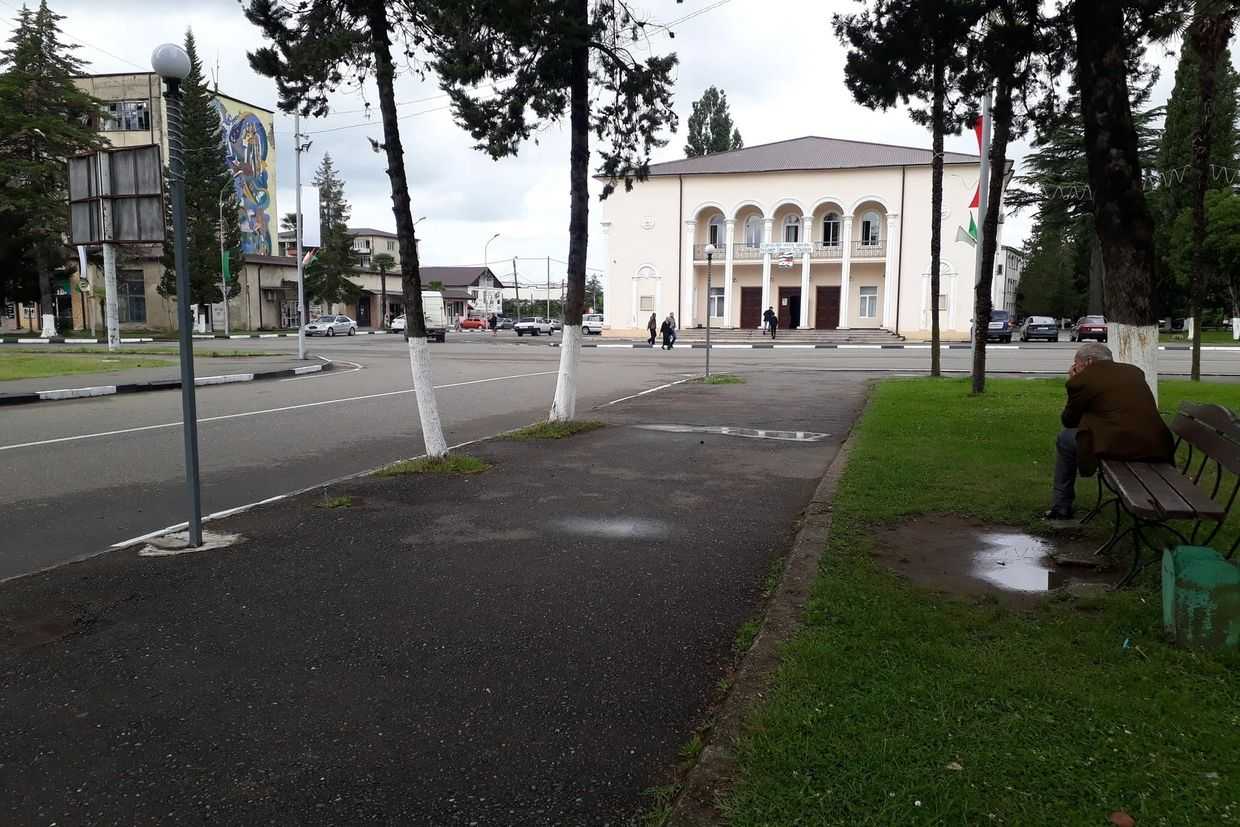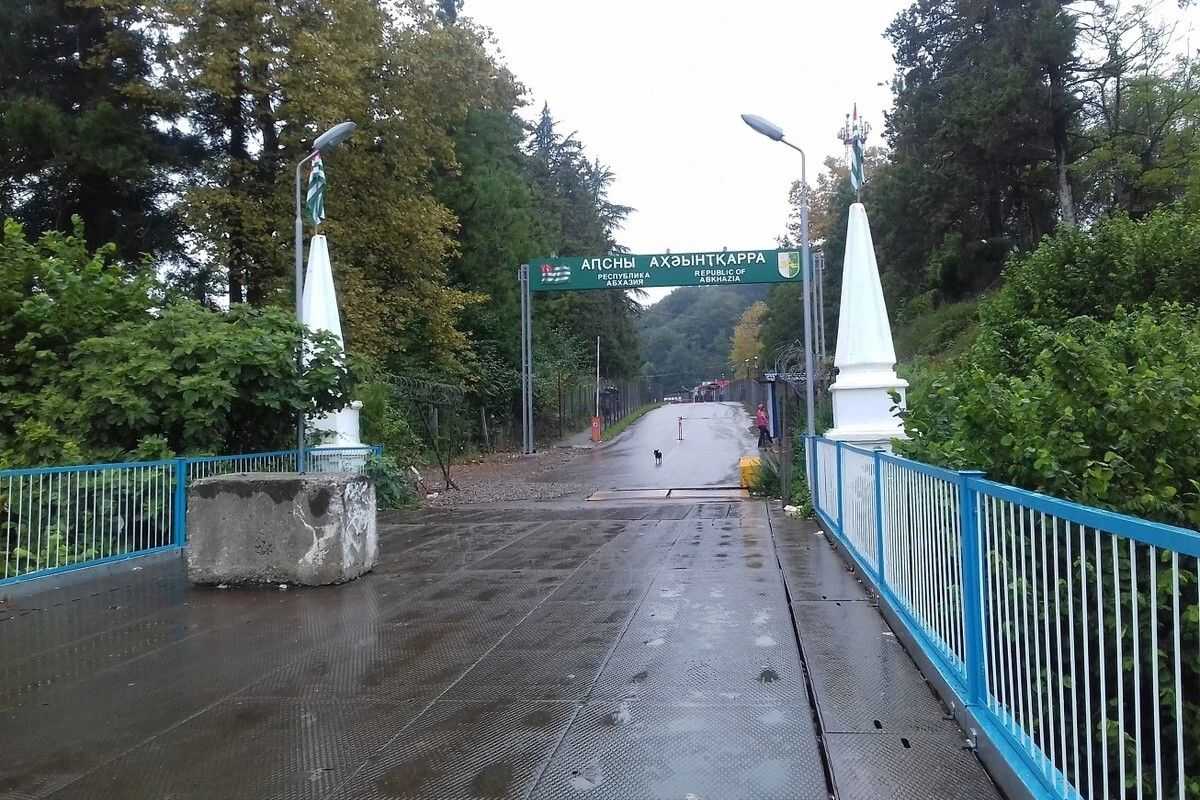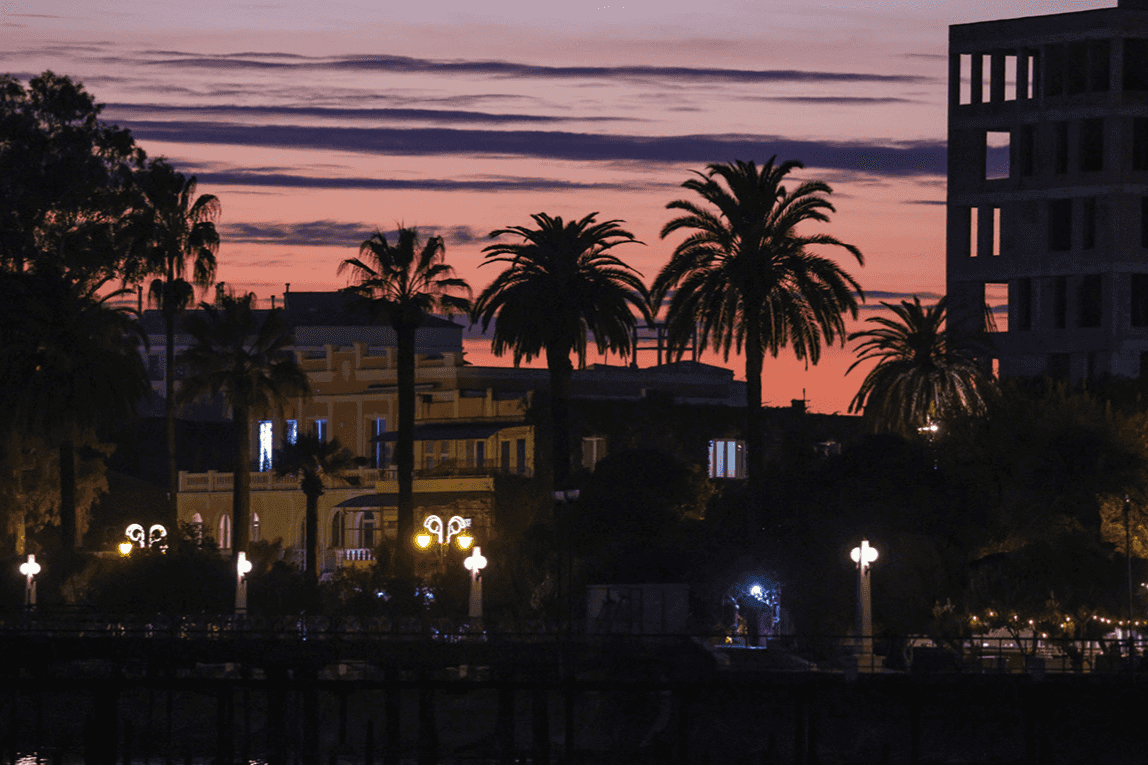
Turkey’s North Caucasian diaspora has long occupied an uneasy position between Ankara and Moscow, but after Russia’s invasion of Ukraine and Erdogan’s re-election, tensions within the community and its representative organisations are coming to the fore.
This year’s commemoration of the Circassian Genocide on 21 May stood out: instead of primarily gathering in Istanbul, the bulk of the commemoration took place in Ankara at Anıtpark — a park built in the shadow of Mustafa Kemal Atatürk’s mausoleum at Anıtkabir.
The proud display of ethnic minority imagery so close to where the Turkish republic’s founder rests would normally be taboo, but a variety of flags were flown that day: Circassian, Abkhazian, and the flag of the Chechen Republic of Ichkeria.
The commemoration represented both the North Caucasian community’s uneasy closeness to political power in Ankara and their underlying vein of nationalist identity, which stands in opposition to Russia’s approach to the North Caucasus
However, recent dramatic developments in Turkish politics — Recep Tayyip Erdoğan’s victory in the elections, his rumoured ‘turn to the West’, the entrenchment of authoritarianism in Turkey, and the apparent downgrading of relations with Moscow — could deeply impact Turkey’s Caucasian diaspora.
Alongside this, a rise in discontent with Moscow in the North Caucasus following Russia’s invasion of Ukraine may yet prompt a shift in their relationship to the Caucasus.
Proximity to power
Turkey’s North Caucasian diaspora, dominated by Circassians, has been close to centres of power in Turkey since the latter days of the Ottoman Empire.
Most settled in Turkey by way of exile and genocide in the northwestern Caucasus following the end of the 19th-century Caucasian War. Upon landing on Turkey’s shores, many Circassians and other North Caucasians ended up in slave markets and the Ottoman army.
‘Slavery, and, through slavery in large measure, service, was central to how Circassians related to the Empire’, argues Ryan Gingeras, a professor of history in the Department of National Security Affairs at the Naval Postgraduate School, California.
‘Historic ties to the Ottoman elite paved the way for Circassian Turkish citizens to become what is arguably the most influential and “tolerated” minority in Turkey’, Gingeras tells OC Media. He adds that while some were politically marginalised for their cultural independence, many others became successfully integrated into the ‘upper ranks’ of Turkish society.
The diaspora was historically instinctively hostile to Russian and Soviet influence in both Turkey and the North Caucasus.
Zeynel Besleney, the general coordinator of the Centre of Circassian Studies in Ankara, says that this hostility to Moscow’s influence is a near-constant of North Caucasian politics in Turkey. All North Caucasians in the diaspora grow up with the knowledge that Russia was responsible for the ‘catastrophe’ of the Circassian genocide, says Besleney.
‘It’s a built-in position’, he says.
The diaspora in Turkey is represented by several organisations. The largest is the Federation of Caucasian Associations (KAFFED), an umbrella organisation managing over 56 North Caucasian associations in the country.
KAFFED has its roots in organisations first formed in the 50s and 60s in Istanbul, Ankara, and Kayseri — all cities with significant North Caucasian communities. According to Besleney, many of the organisations that formed the bedrock of KAFFED were left-wing, in part due to their hostility to assimilationist policies.
The left-leaning, anti-assimilationist roots of KAFFED historically made them occasionally sympathetic to the Soviet Union, and KAFFED has generally maintained a functional relationship with Moscow and the International Circassian Organization (ICA), based in the Russian Federation.
Akanda Taştekin, a Turkish–Circassian activist and reporter for Istanbul-based Caucasian magazine Jineps (Circassian for ‘tears of wind’), tells OC Media that Circassians ‘share the same fate with other minorities living in this geography’.
‘[They] face a serious risk of cultural assimilation’, adds Taştekin, and notes that advocating for minority rights ‘automatically puts you in an oppositional position in Turkey’.
‘Even voicing a very basic demand such as the right to education in your mother tongue makes you radical’.
Besleney states that despite their implicit opposition to mainstream nationalist Turkish politics of nationalism, most of the diaspora still tends to support one of the main political parties.
He notes, however, that regardless of where they stand on Turkey’s political spectrum, most North Caucasians agree that questions regarding Abkhazia, South Ossetia, and Chechnya’s relationship to Russia are key issues for the community, but strong divisions remain.
Besleney argues that ‘every’ Abkhazian and Ossetian organisation in Turkey maintains a distinctly pro-Moscow perspective, while many Chechens are more likely to sympathise with Chechens resistant to Moscow’s rule.
He adds that many members of the diaspora view the Moscow–Ankara relationship as a matter of personal importance; in the 1990s, many North Caucasians repatriated to the North Caucasus or moved back and forth between Russia and Turkey.
Relations with Russia later became more hostile, with North Caucasian activism reaching its peak in protests against the 2014 Sochi Winter Olympics.
Sochi was the last stronghold of Circassian and North Caucasian resistance against imperial Russian forces in their conquest of the Caucasus in the 1860s. Protests both in Turkey and further afield demanded the recognition of the Circassian Genocide and that the event be moved.
The protests drew off the strength of online activism and led to the inception of the Change Movement, an organisation dedicated to changing KAFFED from within.
The Change Movement came to the fore in 2021, with the election of Ümit Dinçer as president of KAFFED. Dinçer represented a younger generation of North Caucasian activists who are more openly anti-Moscow than their elders, though usually not to the point of engaging in armed struggle.
[Read more on OC Media: Turkey’s largest North Caucasian organisation to take anti-Kremlin turn?]
But, despite high-level shifts in stated positions, there remain significant differences of opinion amongst North Caucasian groups.
According to Besleney, nearly every Circassian fighting against Russian forces in Ukraine today, both those from the North Caucasus and the diaspora, has an Islamist political background and is generally not connected to a mainstream diaspora organisation.
Such fighters also find themselves caught between present-day and historic political allegiances, with Besnel noting that some sympathy for Ukraine is complicated by the fact that Cossacks, many of whom were ethnically Ukrainian, participated in the Circassian genocide.
It remains unclear and difficult to determine if what is holding Turkish Circassians back from taking a more unified stance against Russia is this complex mixture of emotions, or the Russia–Turkey relationship itself.
‘Everyone who is not a Turkish man gets their share of brutality’
While some suggest that Turkey’s relationship with Russia has shifted in recent years, Nicholas Danforth, a senior visiting fellow at the Hellenic Foundation for European and Foreign Policy, doubts that Ankara’s attitude towards Moscow has changed.
‘I don’t think [Erdogan’s re-election] marks any radical change in Turkish–Russian relations’, Danforth tells OC Media. ‘Both before and after the invasion of Ukraine, Ankara has been clear it wants to pursue an independent foreign policy, balancing between Russia and the West to maximise Turkish interests’.
But Sinem Adar, an associate at the German Institute for International and Security Affairs for Applied Turkey Studies, says that Turkey’s inability to trust the West has motivated it to deepen ties with Russia.
Adar cites the US partnership with Kurdish groups in northern Syria and a ‘lack of solidarity’ from the US and EU in the aftermath of the failed coup in Turkey in 2016. She notes that business ties between Russia and Turkey have also flourished, with the two states learning to cooperate in Syria and Nagorno-Karabakh.
Where this leaves Turkey’s North Caucasian diaspora remains to be determined. But when asked about the future of the diaspora, a consistent thread emerges: approaching chaos.
Besleney states that an interesting development of the last few years is increasing division within the North Caucasus diaspora on the issue of Georgia.
Many Ossetians and Abkhazians in Turkey remain loyal to de facto authorities in Tskhinvali (Tskhinval) and Sukhumi (Sukhum), but tensions within the diaspora have left large numbers of Circassians sympathetic to Georgia.
However, this division may be as much a symptom as a cause when it comes to intra-diaspora disputes.
Within KAFFED, and the Circassian Diaspora more broadly, such divisions have become increasingly apparent. The Change Movement had difficulty enacting its agenda during Dinçer’s time in office, and an old guard of relatively conservative figures within KAFFED was eager to restore the pre-Dinçer status quo.
Besleney predicted that the KAFFED election held in November was likely to see the return of the ‘old cabal’, who he suggested would have a closer relationship with Russia and less openness to activists, leading to discontent among young activists and potential fracture.
Such shifts in ties and allegiances have also been accelerated by Russia’s war in Ukraine, which, in driving many prominent intellectuals, musicians, and ordinary North Caucasians to flee the draft to Turkey or Georgia, has tightened connections between the diaspora and leading figures in the North Caucasus.
New organisations, such as the conservative nationalist and Western-backed Council of United Circassia, have also formed from a combination of established members of the Turkish diaspora and new arrivals.
These new ties, and the emergence of Tbilisi as a major fixture in the firmament of the North Caucasus diaspora, are developments likely to outlast the war.
[Listen on OC Media: Podcast | North Caucasian art and activism in Tbilisi]
Talking to young North Caucasus diaspora activists makes clear that the concerns outlined by Besleney regarding the possible fracturing of the major diaspora organisation are very real.
KAFFED’s 11th General Assembly, held on 19 November in Ankara, may well have confirmed Besleney’s predictions. The Assembly saw the election of Ünal Uluçay and the formal end of the Change Movement.
The Change Movement’s official Twitter account stated in its final message on that KAFFED’s ‘organisational model’ had ‘gone bankrupt’, and that the organisation had chosen ‘immutability over “change” ’.
A number of Caucasian activists have stated their wish for their representative organisations to go further: openly align themselves with left and liberal opposition forces in Turkey and a broader solidarity with minorities in the country.
‘KAFFED may have positioned itself on a partially oppositional line, but this is definitely not sufficient’, says Taştekin.
She adds that Circassians find themselves in a space where integration threatens to erase their identity, having become ‘one of the most assimilated segments of this society’.
‘[It] is not possible to keep culture alive through [just] dance, music or food’, says Taştekin.
She adds that protecting diaspora identities may become an increasingly pressing issue in the near future, stating that Turkey’s government is becoming ‘more authoritarian and brutal’.
‘Circassians, Kurds, Armenians, women, children, LGBTI+ [people], refugees, immigrants, who are obviously more disadvantaged, or to put it this way, almost everyone who is not a Turkish Sunni male, gets their share of this brutality’, says Taştekin.
How diaspora organisations and communities fight this threat amidst a shifting geopolitical landscape remains to be seen. According to Akanda Taştekin, ‘a problematic period lies ahead’.








